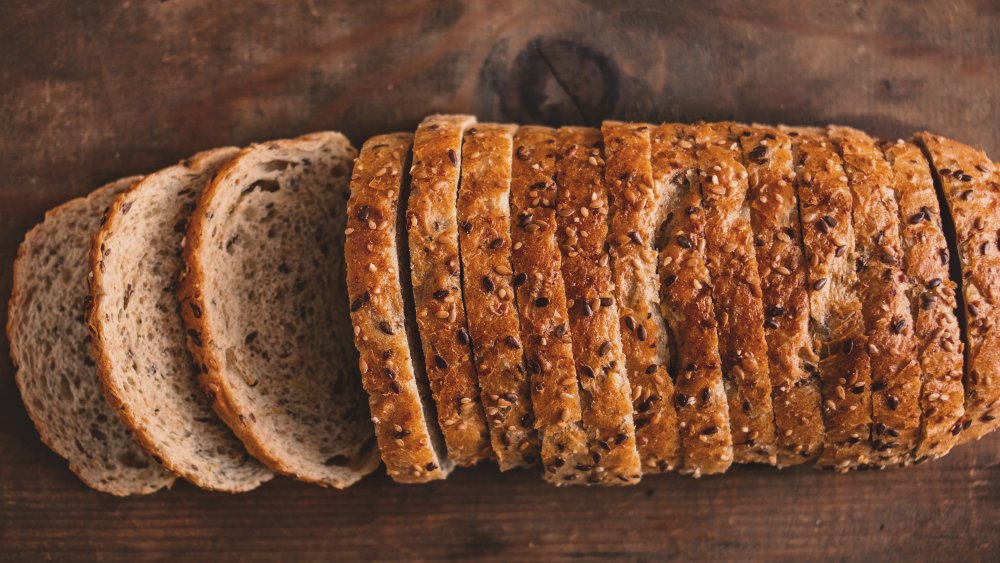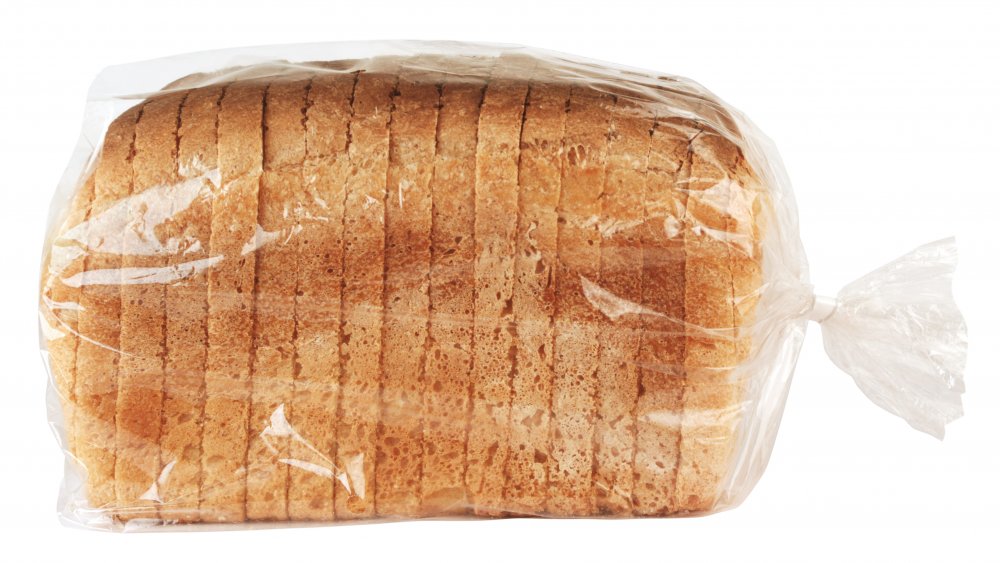The Truth About What's In Your Bread
There's a reason why we call it our "daily bread." It's what you stick in the toaster to keep your coffee company every morning, a required participant in your brown bag lunch, and how do you even eat at a restaurant without a nice hunk of baguette to dip into olive oil? But have you ever thought to think about what's in this dietary staple? As wholesome as bread may seem, as it turns out, your loaf could be loaded with a lot of things you actually might not want to eat every day.
In an exclusive interview with Mashed, Rick Eshoo, baker and research and development lead at Atoria's Family Bakery, warned that you might be biting into more than you've bargained for when you buy bread without carefully inspecting the labels. "What's not in your bread is just as important as what is in it," Eshoo said. "We think bread should be baked with a handful of simple, pronounceable ingredients and should never include any artificial colors, flavors, or preservatives."
The unexpected ingredients you'll find in bread
According to Eshoo, additives are generally baked into bread with the goal of increasing shelf life and enhancing flavor. Some bread manufacturers use "chemical preservatives like propionates, benzoates, or sorbates," he said. "These ingredients can make bread look and feel fresh even if it's been on the shelf for a month." He explains that Atoria's Family Bakery avoids these preservatives — which does mean customers will need to refrigerate or freeze the bread to keep it fresh.
Ever wonder how that loaf you bought at the supermarket could have such a bouncy, fluffy texture? It's likely due to leavening agents, Eshoo said. "Chemical 'cocktail' leavening agents like baking powder... increase sodium and leave unhealthy residual material that just tastes terrible!" he added. It's this baking powder taste that prompts some bakeries to add extra sugar, salt, oil and artificial flavors — bad bread-baking practices that should be avoided. "Grains should provide the bulk of the flavor to any good bread," Eshoo said.
To avoid biting off more chemicals and additives than you want to chew, Eshoo advises that consumers "look for breads that are baked with simple ingredients. Look ingredients up for yourself and learn about what you are putting in your body," he added.

